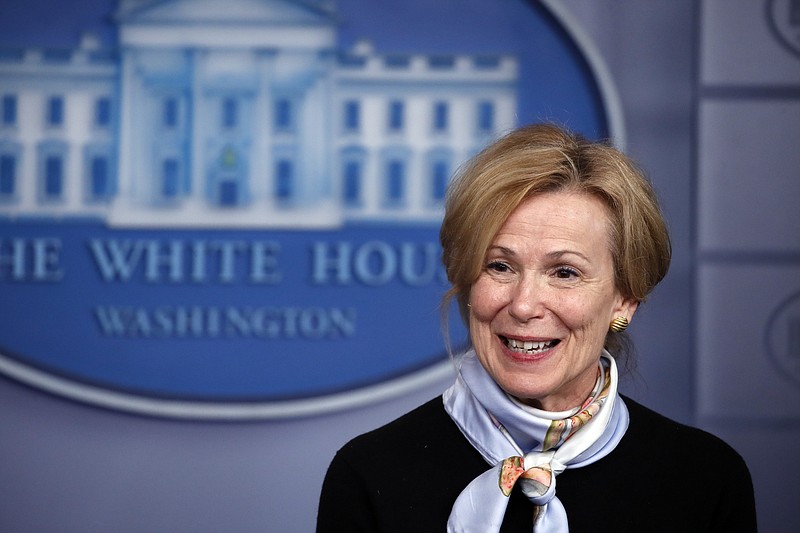National Doctors Day, observed Monday, couldn't have come at a more appropriate time.
Every day of the year has its special national designations - sometimes two or three - so greeting cards and corners of the internet are the only places where many of them are usually celebrated.
But this year, perhaps more than any other before it, doctors deserved a way for Americans to say thank you, a way for us to say we appreciate them being there when we need them.
Except they are too busy for such celebrations.
During the coronavirus outbreak, doctors are not only treating patients who have contracted the illness but trying to keep from getting it themselves. Elsewhere, colleagues in the field are treating cancers, fixing fragile hearts and repairing broken femurs. Others are helping mend broken spirits, researching the next virus or delivering babies.
When we think of doctors today, we give thanks for the sound medical advice of Dr. Anthony Fauci and Dr. Deborah Birx. In a fearful time where people are looking for answers, between a gloom-and-doom national media and the once too dismissive president, they are voices of reason.
Between Fauci, the director of the National Institute of Allergy and Infectious Diseases and a member of the White House Coronavirus Task Force, and Birx, response coordinator for the White House Coronavirus Task Force, Americans have been getting straight talk about how to handle the coronavirus.
While National Doctors Day was first observed in 1933 and first proclaimed by President George H.W. Bush in 1991, we think of another March event in which doctors played a role in bucking up the nation's psyche. That was March 30, 1981, the day of the assassination attempt on the life of Ronald Reagan. Not only did doctors treat him properly and promptly, but they played along with his humor. When the Republican president removed his oxygen mask before surgery to say, "I hope you are all Republicans," lead surgeon Dr. Joseph Giordano - a liberal Democrat - replied, "Today, Mr. President, we are all Republicans."
The team of doctors also kept the American people, who'd seen a president assassinated only 18 years earlier, informed of their new president's condition. And that was particularly valuable since CNN, a cable news channel which had its debut less a year earlier, broadcast 24 hours day and needed news to fill.
We believe nearly every person, though, is likely to have their own memory of a favorite doctor, whether it be a beloved pediatrician who treated every childhood ache and pain to a team of doctors who may have saved a particular patient's life.
Our memories float back years ago to two doctors. One of those treated a group of people who worked together by handing out drug samples and good advice and charged us almost nothing. The other, a gentlemanly doctor of an older generation, in treating a foot problem at his office late in the day and with only a nurse present, made the procedure a little easier by saying, "Scream all you want to. No one else is here."
Doctors not only must be educated and trained, but they also must be mind readers, good guessers and father (or mother) confessors. They must try to juggle a work life of far more than 40 hours (with paperwork and hospital visits, where still applicable) with a home life and a social life (when there is no more social distancing).
Meanwhile, medical school debt still looms along with the costs of a practice and the attendant medical equipment.
Today, with the coronavirus outbreak, as a recent New York Times article points out, doctors also may burn out, suffer from post-traumatic stress and be forced to make the kind of decisions - such as a moral use of ventilators - that no doctor ever planned to make.
The article compared doctors to first responders, and that is more true now than ever before. Yes, they long have been first responders in the emergency room and in offices in saying that lump is suspicious or that cough needs to be checked by a specialist, but now they must help patients distinguish between symptoms of the coronavirus, and anything else, while determining its severity and how to treat it.
We probably wouldn't be amiss if we failed this month to acknowledge National Landline Telephone Day (March 10), National Awkward Moments Day (March 18) or National Goof Off Day (March 22), but this year of all years with the passing of National Doctors Day, let's remember the great service our physicians have done, are doing and will be doing for us locally, nationally and internationally.
